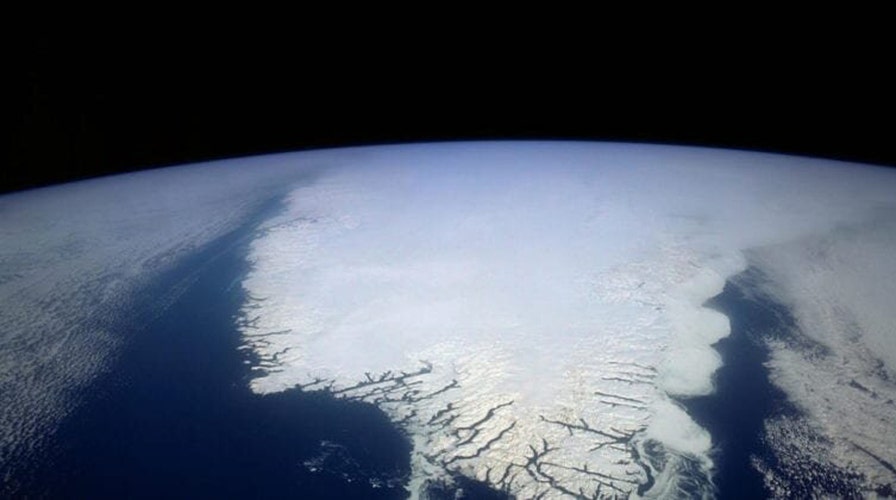Fox News Flash top headlines for Oct. 16
Fox News Flash top headlines for Oct. 16 are here. Check out what's clicking on Foxnews.com
Researchers have discovered a massive ice age more than 600 million years ago radically altered the planet's climate, resulting in a "Snowball Earth."
The study, published last month, notes that the ice age left the planet "a barren, flooded landscape" with "clear oceans," according to how carbonate sedimentary rocks formed over millions of years after the Snowball Earth.
"It was previously thought that these distinctive carbonate rocks were deposited over less than 10 thousand years, as the sea level rose when the ice that covered the entire globe melted, but we have shown that they were likely deposited over hundreds of thousands to millions of years following the sea-level rise," the study's lead author, Adam Nordsvan, said in a statement.

(Credit: NASA)
EXTREME ARCTIC SNOWFALL WIPED OUT BREEDING OF ANIMALS AND PLANTS, STUDY REVEALS
"There is already some evidence that suggested these rocks took a long time to form, but no one had been able to explain why this might have occurred," Nordsvan continued. "What is intriguing about the period following Snowball Earth is that the planet surface was essentially completely renovated. It appears that the extended glacial period removed all the beaches, deserts, rivers and floodplains, and reset important Earth systems that took millions of years to recover."
One of the study's co-authors, Milo Barham, said the discovery may be able to lead researchers to new findings on how complex life evolved.
"The melting of ice sheets after Snowball Earth caused a dramatic rise in sea level, ultimately flooding the continents, driving a remarkable retreat of shorelines and the development of clearer ocean water," Barham said.
"Researchers have long been aware that the timing of Snowball Earth and the development of more complex life seem to have coincided, but no one has really thought about how the oceans being starved of sediment might have helped ancient organisms thrive in the oceans," Barham added.
The research has been published in the scientific journal Terra Nova.









































